JRPG vs. WRPG: Different priorities, and the reasons behind them
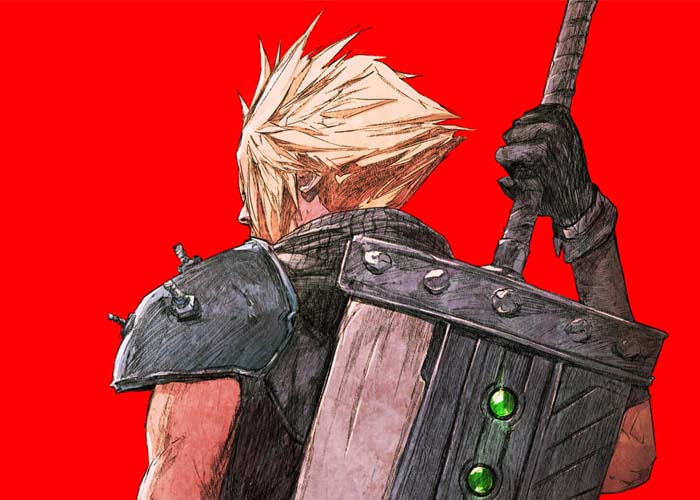
JRPGs (Japanese role-playing games) and WRPGs (Western role-playing games) are two different types of RPGs, or role-playing games. Think Pokémon or Final Fantasy (JRPGs) vs. Witcher 3 or Skyrim (WRPGs). JRPGs are role-playing games made in the Japanese style and WRPGs are role-playing games in the Western, and specifically the US, style. The audiences for both differ, and so do their priorities, which we will discuss.
Frankly, RPGs in general have a loose definition. Anything from MOBAs and first-person shooters to action and arcade games can end up falling in the RPG category. It’s the very nature of this genre. And some hate this – in fact there’s a whole camp of gamers who despise when their favorite games get tagged with RPG. But the important thing to keep in mind in these instances is that RPG is more of a supporting or secondary trait of the game, whereas the main genre still defines the primary category.
That being said, it must be pretty hard to further differentiate between subsets of RPGs. But comparing JRPGs with WRPGs is surprisingly easier. Here are some common traits:
- JRPGs are typically more storytelling-driven, while WRPGs usually focus on combat and having a complex story. There’s a lot of dialogue in JRPGs and an emphasis on character interaction and storytelling compared to WRPGs.
- WRPGs tend to be more action-oriented than JRPGs. They often have a focus on fighting monsters or solving puzzles – both of which require you to use your imagination and think outside the box to progress, or be stuck infinitely in a frustrating loop more often.
- Many JRPGs have turn-based combat systems. In contrast, most WRPGs use real-time combat systems that allow for fast-paced action sequences with tons of movement options for your characters.
In this article, we will be dissecting both genres and drawing comparisons. The goal is not to determine which one is better. Neither is better. The goal is to better understand both and why they have some priorities missing in the other – and hopefully, on this journey, we will all learn to appreciate both genres more. Here are the priorities we will tackle (JRPG vs. WRPG):
- Engagement: Storytelling vs. combat
- World setup: Slow-paced vs. immediate action
- Narrative: Episodes vs. ideas
- Combat: Organic vs. challenging
- Characters: Playing vs. making
- Immersion: Gameplay vs. worldbuilding
- And some burning questions:
- Have WRPGs dumbed things down?
- Do WRPGs have true freedom of choice?
- Are WRPGs becoming more and more like JRPGs?
Japanese-style RPGs are created mostly in Japan but also in the US. Similarly but more rarely, WRPGs can also be created in Japan. The terms are not ambiguous but the characteristics of games in both genres are quite loosely-defined. Let’s first talk about each in some more detail to better pin down what are we comparing today – before we get down to the meat of the discussion.
Feel free to skip if you feel confident with your current understanding of what both genres specifically mean.
What are JRPGs?
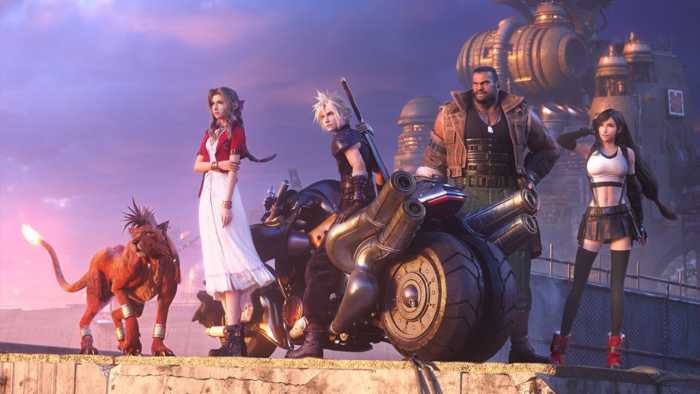
A JRPG is a type of video game with story-driven gameplay, where players take on the role of a character and explore a world, complete quests, and fight monsters and bosses to advance the plot. JRPGs are often similar to Western RPG games in terms of gameplay but differ significantly from them by their focus on story and characters over action.
Good examples of JRPGs include the Famicom games such as older Dragon Ball ones and a huge majority of Game Boy ones. More popularly, Pokémon, Final Fantasy, Dragon Quest, Monster Hunter, Kingdom Hearts, Souls, Super Robot Wars, and Mario have been instrumental to the proliferation of the genre.
Major companies that specialize in the genre include Bandai Namco, Capcom, Nihon Falcom, Sega, Square Enix, Nintendo, Konami, etc. Unsurprisingly, these are all Japanese companies. You will recognize these names outside of Japan as well because most of them are multinational.
What are WRPGs?
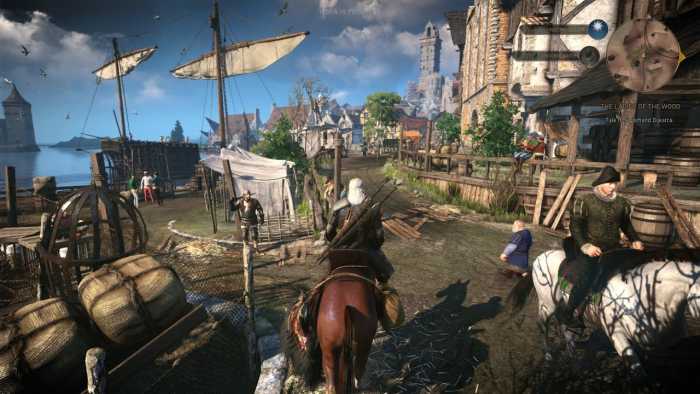
WRPG (Western Role-Playing Game) is a genre that has been around since the 1980s when it was first popularized by Ultima Underworld. In WRPGs, you play as one or more heroes who must save the world from evil forces. You will go on quests, explore dungeons, fight enemies, find loot, and buy equipment along the way.
There are also many different types of WRPGs: action-oriented games like Diablo II or Skyrim; adventure games like The Elder Scrolls V: Skyrim or The Witcher 3; massively multiplayer online role-playing games (MMORPGs) like World of Warcraft; social simulators like SimCity; simulation games like Crusader Kings II or Civilization V; strategy games like Total War: Shogun 2; and the list goes on.
Engagement: Storytelling vs. combat
What defines engagement? More specifically, what determines whether or not you will be hooked in the first few hours of playing a game? For some, it’s the sheer hack-and-slash aspect, or technically combat. For most RPG lovers, it’s all about the storytelling.
The story and storytelling two different things. It’s not rare to have a wide quality gap between the two in the same game – meaning a great story with poor storytelling or a shallow story told beautifully.
Generally, JRPGs don’t offer much in terms of the story’s richness but rather focus on telling it better. So, are JRPGs shallower in writing?
This is somewhat valid. Instead of focusing on writing stimulating stories, many commonly-known JRPGs write a sufficiently gripping story and then focus on other things. In fact, many even borrow central ideas from each other. And within a franchise, new story arcs also start to become repetitive.
In terms of writing, WRPGs surely pack quite the punch. They are more memorable and have more replayability value due to their stories, not due to the storytelling.
Focus on storytelling and establishing characters (both traits of JRPGs) does not make for a better story.
Storytelling is not an isolated, singular entity. It’s a combination of many factors. It’s entirely possible for a game to have a great storyline but poor execution – for example, slow character development or plot progression, which can make things dull. To have good storytelling means to have the perfect balance between the narrative and characters.
If you are a sucker for storytelling then JRPGs are the way.
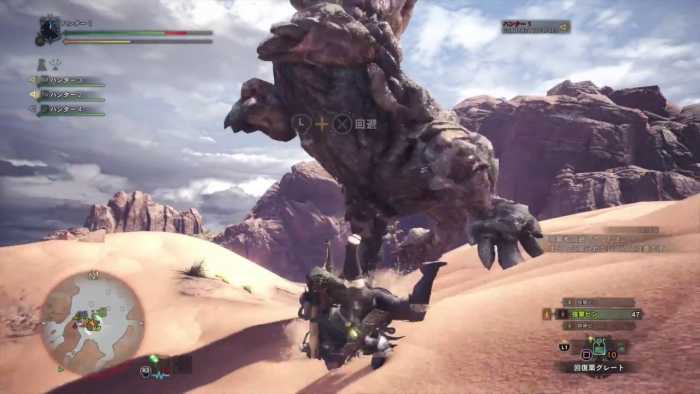
But understand that the overall story can still be pretty cliched. The adventure of the “lonely teenager from a small village” is a classic, and also a problem, as IGN writers Erik Brudvig and Ryan Clements wrote more than a decade ago in their infamous piece on the “Top 10 ways to fix JRPGs.” Avoiding cliched stories ranked #2 in their list.
Cliches are indeed very common in the story that even “teenagers who are secretly the One” give them a run for their money.
If you like rich stories more, then WRPGs are better for you. Even if you’ve played just a dozen WRPGs, you are sure to have fallen in love with characters, their backstories, and their relationships. That’s not true for someone who has only played a dozen of JRPGs and such fascination or love with the story happens less frequently for them.
World setup: Slow-paced vs. immediate action
JRPGs like to take their time to set up the world. More specifically, they explain more, demand more time, and sort of try to make sure you understand the basics before you begin. And the majority of this stuff is text-based. Consequently, it’s not uncommon to be bombarded with a ton of text even before you can take your first steps freely.
This is different from the initial in-game tutorial – which can be present in equal measures in both genres.
WRPGs try to get the player doing something as soon as possible. This is clear evidence of the difference in the attention span of the target audience. Arguably, it is also something that can be disconcerting when someone from one audience tries out a game from the other genre.
A JRPG game like Persona 5 is insanely good in terms of gameplay and writing. It also has an hour-long introduction without player control. This game, along with most other JRPGs, expects the player to first understand what’s up.
Introductions, character expositions, explanation of core mechanics, random walking around to learn stuff, etc. are luxuriously sprawled out in the beginning.
In stark comparison, a game like Witcher 3 (WRPG) gives you a sword after a few short cutscenes and you can already “hit stuff”. This allows players to live out their fantasies and sort of express their characteristics better as the game progresses. A WRPG world is “your world.”
Narrative: Episodes vs. ideas
Another quality inherent to JRPGs is the episodic treatment given to the plot. In many ways, it’s easy to see why people draw parallels between JRPGs and anime. The construct is simple. You are always given a safety net where you can ponder before you move on to the next level, dungeon, or more accurately, “episode.”
WRPGs do things a little differently. Instead of setting episodes or cut-up narratives, they offer key ideas or objectives. You can take your sweet time to fulfill said objectives. The pacing, thus, becomes quite different as it’s completely up to you to set it. And it’s possible that you will revisit certain aspects of the game repeatedly (a non-episodic treatment) in WRPGs. In not controlling you so inflexibly, WRPGs give you more control and freedom of decision-making.
This freedom can easily be just an illusion and the game might still be pretty linear in its progression, but the pacing is totally up to you.
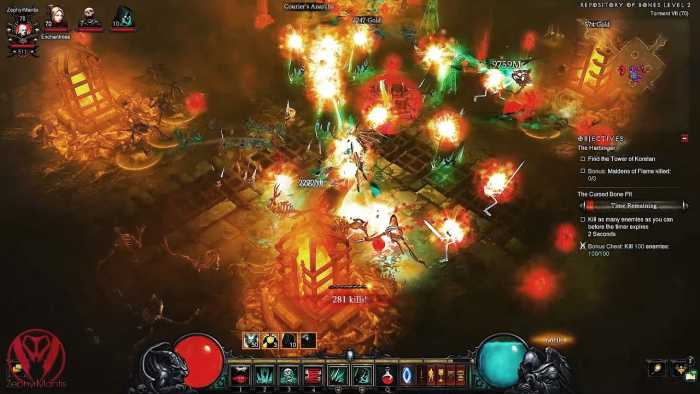
Combat: Organic vs. challenging
JRPGs offer a somewhat casual experience. This doesn’t mean that their mechanics are always simple. In general, however, WRPGs offer you the choice to make your gameplay more challenging (without speedrunning or setting up a higher game difficulty).
This is not a victory on any part. It is once again a hint toward what each genre expects from its audience. JRPGs are not overly concerned about whether or not the game is impossibly difficult to play. They offer a remarkably more “organic” gameplay. WRPGs, on the other hand, offer a more challenging path or journey.
The “organic” combat in JRPGs is evident if you play recent JRPG games. For example, games like Bleach Brave Souls, Dragon Ball Z: Kakarot, and Naruto Shinobi Striker have something in common apart from being based on OG shonen anime, and that’s their focus on more organic gameplay. Check out the following video:
In contrast, any WRPG worth its salt in the last few years will have a more inorganic combat. This means that preparation and strategy are often more important than the actual combat, and sometimes the combat is very technical to the point you become tired repeating the same cycle of parry-roll-hit-disengage-repeat.
Characters: Playing vs. making
Historically, storytelling in Eastern cultures has been more about personalities. In the same vein, JRPGs give you characters with well-established personalities, relationships, and traits. In WRPGs, things are a little different.
To whatever extent feasible, almost all WRPGs worth their salt try to make you, the player, define the character. This is the classic case of playing a written (no matter how well-written) character and making a character as you go.
True, even if you feel like you are making your character, it’s still decided how things will pan out. In other words, you are making your character in a way that has already been dictated for you to make, to some extent, and with some choices. But at least it gives you the feeling that you are connected with the character, rather than exploring the life and quest of a pre-defined one.
Immersion: Gameplay vs. worldbuilding
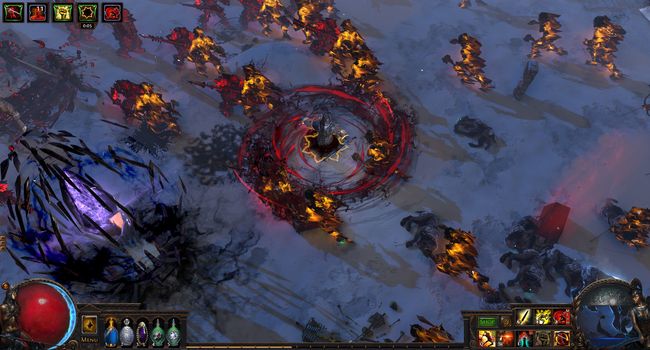
This is the last distinction. The ultimate focus, if you will. Everything else is just a buildup to the battle between more immersive gameplay and more immersive worldbuilding, as we will find out.
Worldbuilding fiction has a special place in the West. Japan is more about light novels and manga based on ordinary life and ordinary quests – sort of enjoying the “now” vs. fantasizing about the “what if.” Literature forms the backbone of many RPGs and it sure influences what games work better in the West vs. East.
Consequently, JRPGs focus more on immersing players in the gameplay. Everything else ties in beautifully here. You cannot have immersive gameplay without well-established characters, powerful storytelling, and pre-defined personalities in an episodic narrative. They are the very ingredients that make compelling gameplay possible.
On the other hand, WRPGs focus more on worldbuilding. They don’t need as well-established characters because the world is totally new and different. It allows players to better express themselves and live out their fantasies, get in on the action as early as possible, and discover things at their own pace. More often than not, a comparatively shallower backstory and a larger quest are all you need.
This is the most important distinction and also one that categorically disproves the superiority or inferiority of any of the two genres. Both, immersive gameplay and immersive worldbuilding are beautiful when experienced the right way.
Answering the burning questions
Both sides have criticisms, much like all genres in existence. But when compared to each other, many claims and misinterpretations get thrown around. Let’s try to answer some burning hot questions.
Have WRPGs dumbed things down?
There is an argument that WRPGs often dumb things down or oversimplify the experience. But what is our reference point? Another older installment in the same series? Another WRPG? A JRPG?
Reducing the complexity of combat systems, inventory systems, and many components like alchemy, talent planning, trait development, etc. is common in WRPGs. This is by no means a signal that things are dumbing down.
See, it’s not just the difference in the audience that the game’s mechanics react to – it’s also “what’s going to work better this year.” And yes, game studios also make mistakes.
All in all, WRPGs are not dumbing down anything.
For an audience not brought up playing tabletop strategy games, it’s perfectly natural to expect a fewer number of variables and calculations while murdering monsters in a video game.
Do WRPGs have true freedom of choice?
This still cannot be asserted conclusively. WRPGs do have more tricks up their sleeves that offer more freedom, but so do JRPGs to some degree. It’s just a matter of which title you are playing.
It is a common myth that WRPGs always have true choice, varying consequences for your actions, and seriously different results depending on the player’s individual playthrough, while JRPGs always have a very preset formula.
The truth is it completely depends on which game you are playing and that game’s particular target audience or inspiration.
Are WRPGs becoming more and more like JRPGs?
The answer will differ depending on whom you ask. Generally, the more someone has played both genres, the more they tend to think that certain qualities of older WRPGs are dying out and getting gradually replaced with JRPG-like elements.
This is a problem for many but this is also scientific to some degree. The push of Japan’s soft power has been immense. There is no organization in the Western game development industry relative to what the Japanese have. More non-gamers now know the names of JRPGs while the names of older, same-time WRPGs will be completely alien to them.
Joel Haddock on Kotaku once wrote that this effect is further amplified by the fact the WRPGs are historically bad on consoles – which makes it easier for them to just fade away.
Wrapping up
Each of these points need their own articles. But as a summary, this pretty much holds up for most of the games in the two genres. The line between JRPGs and WRPGs is fast blurring with games from both genres taking components from each other. But it’s worth talking about what truly is at the foundation of these differences.
Ultimately, it’s a combination of many things. As mentioned earlier, historically games in Japan and in the West have treated their audiences differently. This completely depends on how the video game development industry evolved over time in these places.
The alternative ways of living, cultural differences, differences in the worldview, etc. definitely supported these differences. Furthermore, ideologies and behavioral systems helped cement these differences to a point where these became stereotypes.
Is it about an artistic, imaginative worldview vs. a more pragmatic approach to seeing life? Or is it about the meaning behind being a human that drives these different systems?
More research is definitely needed in this difference before further globalization makes all RPGs homogeneous.
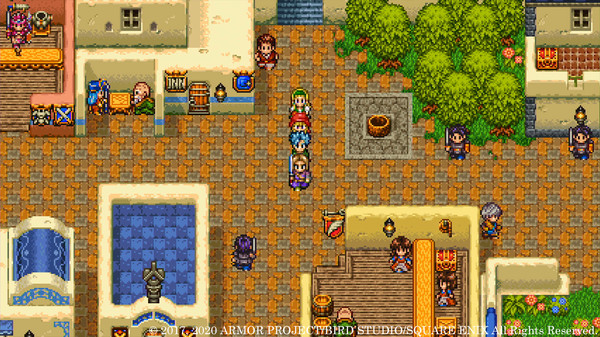
As much as we needed to celebrate these differences, we’d be remiss to not note the many similarities that the two genres have had historically.
For example, it’s largely futile to try and make a comparison between the game complexity of the two genres. Both genres have titles with very sophisticated combat systems, and titles with poorly thought-out ones.
Sophistication alone isn’t the keyword here. In fact, both genres have sophisticated combat systems that are overly complex and unnecessarily clunky.
The same goes for incessant grinding. That’s one thing you will stumble upon every once in a while regardless of which genre you are playing games in.
Ultimately, it is a more rewarding experience to play what you love and to explore new avenues with an open mind. After all, all RPGs have the power to stir emotions in a way no other genre can.
What do you think? Leave a comment.



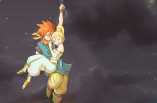







Great job delineating the genre differences. As someone who has played her fair share of RPGs this is a solid write up on the various quirks and tropes between the two major styles in my opinion.
The way I see it is, WRPG is mostly told on the perspective of your character, his interaction to those who surround him and his general view or take of the world he’s in. JRPG however is more about a thorough view of the world, the whole cast of characters’ perspective is taken as whole rather than just the main one, creating deep character development along the way. Both are fun to play don’t get me wrong, but you’ll notice that it’s the reason why most WRPGs is in First Person POV, while JRPGs on the other hand is more on Wide range POV.
I like both genres, but i must say i prefer WRPGS. I never liked much the limitations that most JRPGS put on you, and they are so similar to one another; it’s always the same young male protagonist with “the good guy” personality, the love interest who is the second character to show up and the “chosen one who saves the world” story.
Maybe we should divide RPG genres into different subgenres. For example, you can call one story-based, and another character investment based. Basically, one that focuses primarily on a story, and the other on making your own character unique to you. Games that fit both criteria will have both of these genre labels.
Western RPG’s are superior in every way possible. All JRPG’s have the same garbage game design and emphasis on a typical over dramatic story instead of gameplay.
Japanese story telling kinda meh, they have a good premise but can’t grow that good premise to an amazing storyline and good ending. I read a lot of novels, from china, korea, and Japan. And the best novel I ever read come from China and Korea. Especially korea, they maybe have questionable premise but they can grow that premise to an amazing storyline.
I thought a JRPG was a journey rpg. My life is a lie.
Fallout and elder scrolls vs final fantasy and persona? Huh I pick the western side.
I really don’t like the concept of RPG as a video game. I mean, yeah, technically, Mario can be a RPG, you’re playing the role of Mario. But I prefer my “RPGs” on paper, with pencils, and books.
RPG is an umbrella term that can be applied to most games. Most people just use JRPG vs WRPG to refer to the art style and tropes involved with both. Games like Dark Souls or Bloodborne are not usually referred to as JRPGs despite being RPGs from Japan.
When comparing the two genres myself I noticed that both have character stats. But in JRPGs these stats matter only in battle. I did not play any JRPG for a while (except of some Fire Emblem) so I might be wrong, if things changed.
Do the social stats in persona count?
Final fantasy 7 is the only JRPG I want to play. Mostly for nostalgia.
I gotta disagree with pretty much anyone who distinguishes rpgs from japan to those from the west. A jrpg to me is an rpg game that was never released in the US. That’s it.
So British RPGs (which would be pretty much indistinguishable to American ones) are J-RPGs? I’m assuming you mean any RPG created in Asia, but then you would call a Chinese RPG a Japanese RPG – simply untrue. It’s almost as if you think America has it’s own style and everyone else shares theirs, when in fact I would say Japan has a more distinguished style than America does to other countries (due to the way everyone including Japanese have tried to borrow from American game styles). JRPGs are very distinct. A JRPG to you should be an RPG that either came out of Japan or one that is clearly inspired by the games that came out of Japan. EVERY game released outside of the US will not fall under that category, and imagining it so won’t make it true.
The only WRPG’S I play are Marvel Ultimate Alliance and Justice League Heroes, most of them seem so boring and not imaginative enough for me. Like it’s always dark and drab. I tried Fable, Witcher, Skyrim and the all suck imo
Versatility of games such as Earthbound, CT, or the early FF series had a wide supportive cast. From the graphics, music, story and character development. To gameplay design, all interwoven together. Culture influences our perception of what’s fun.
My friends would like to get into RPG’s but don’t really understand the basic concepts of what rpg games are and some of the more basic game vocab around the table. Any tips?
jrpgs were usually made for children at the time while western rpgs were made for smart grown-ups. That’s why pc gamers looked at console games with the utmost contempt.
The biggest difference is the battle system. Western RPG’s usually let you fight enemies as you go along, making them lean more towards Action RPG’s, where as JRPG’s have you encounter and fight enemies individually, taking turns attacking opponents or using items and spells.
I think the jrpgs stick way too much to the past.
JRPG’s world design is too linear, along with having very limited choices that affect the outcome of the story, and recent WRPG’s lately have been also been following this trend.
We use jrpg for the same reason we segregate anime from cartoon. The difference in quality.
Not difference in quality, there’s a good anime and there’s a bad one. Same go for cartoon.
All I can say is JRPGs have WAAYYY too many flashing lights. Like I guess there isn’t any epileptics in Japan?
Also, diversity SUCKS in JRPGS.
I consider them all rpgs. I love turn based roguelike 8 bit rpgs. Period.
Funnily enough, there is a genre of BOARD games defined by its origin, that being “german-style” or Euro-Games
I used to call them Computer RPG, where you were the hero and have your story told, and Console RPG, where you control the hero in their story. Due to PC performance we were often offered character customization allowing us to a more personalized experience while console couldn’t offer that option but had tons of secondary characters follow you on your journey.
As war went on about what RPG is, in the end RPG only meant: You have statistics you can improve… but that would make Zelda an RPG as you improve your health, magic and carrying capacity (Ruby, Bomb, Arrow) plus having an inventory. Even Mario would fall into this category and many many more games. RPG would swallow adventure and action games. Also, as time passed, many “console” RPG started to remove the ability to control improvements of characters blurring the line again.
Now many game genre are mixed for a different experience: Action RPG (Vindictus), RTS FPS (Natural Selection)… Almost everything now have RPG elements. In my opinion, RPG genre, should probably saved for a virtual experience of what Tabletop RPG is, not necessarily a virtual tabletop, but something similar in experience, like Legend of Grimrock or King’s Bounty.
JRPG: Netflix and Chill?
WRPG: sure
9 months later: Soulsborne games
JRPG are not actually RPG. You don’t roleplay as a character, you have very little choices, and the story is super linear. “JRPG” are closer to a strategy game than a tabletop RPG.
I do know that Japan has a more complex writing system. It is interesting how that influences there to be more story telling in a JRPG as opposed to a western RPG.
I am so used to the genres of books and movies. It is a bit jarring to see games do something different. Maybe it is possible to do something like that. My favorite genre is fantasy. It is my main special interest. I enjoy reading fantasy books, watching fantasy movies, and watching fantasy TV shows. I even write and draw my own fantasy. I live and breathe fantasy. It is my thing. This actually applies to games. I thoroughly enjoy World of Warcraft, Magic the Gathering and Legend of Zelda.
All of them have very different mechanics and would probably be put in different video game genres. However I still go to all of them for the fantasy. I just can’t get enough of going into a world of magic and monsters. It stimulates my imagination. That goes beyond the mechanics. Games have a fun spin of this. I enjoy the prospect of being an intelligent and powerful magician that goes on adventures. That is fun. Maybe games can go under genres similar to other media. There can be fantasy games, science fiction games and horror games. The other genres are tricky.
There isn’t that much in the way of romance, comedy or drama. If there are games like that, then it would be in a weird niche. I did think of two other genres. One is the real war genre. An example of this is Call of Duty. I have never played it, but I have seen enough footage on Extra Credits to have a good idea on what the game is about. A real war game is a game about war. It is a war that is very similar to war that happens in the real world. This can be done with things like tanks and machiene guns. It could be even subdivided into which war. There can be a subdivision for WWI, WWII, the modern Iraq War and so forth. Another genre I would put is the puzzle game.
Puzzle is more of a mechanics feature. However puzzle games don’t really fit in a genre like books and movies do. Two examples of this is Candy Crush and Bejewled. I saw the Extra Credits episode on Bejewled. I also tried out the game. I play so much of that. It is a simple game, but it can hook me in. I went to bed shortly afterward. Then as I go to sleep, I had a dream of falling jewls. It is like the experiment of Tetris players having dreams of falling blocks. Speaking of which Tetris would also go in the puzzle genre.
Do gamers in Japan call Western RPGs WRPGs?
Interesting article, WRPG’s seem to lead the way in games while JRPGs focus more on storytelling. Unfortunately, the more immersed the player is within the game, the more they become visually dumbed down by the emphasis on action, not the characters or the plot. In the end, games are pure entertainment, and how the user relates to WRPGs or JRPGs depends on their love of storytelling or just wanting to blow away some bad guys.
Basically:
– Jrpgs: the fate of the universe rests on your hands so you must defeat this super powerful entity.
– Wrpgs: the date of the world rests on your hands so choose your words and your actions carefully.
JRPGs are fancy visual novels.
I’ve only ever played JRPGs but never played a western one before.
For me the big difference I have really seen between the two types is jrpg is instanced for combat where western rpgs are not.
RPGs are not the only genre with geographical subgenres. German style board games was a term used before they got called eurogames. Ameritrash or American style board games Is also a thing. American games means high luck, player elimination, high player conflict and very long play time e.g. monopoly, risk. European games tend to be low luck, indirect conflict, no player elimination, shorter or at least defined play time. European games also often have mechanisms to prevent run away leader problems whereas American style games often have long drawn out endings where the eventual winner is more or less determined an hour or more before the end. Oh and Eurogames continue to innovate whereas American style games generally reprint the same few games with new rethemed editions. That isn’t to say that there are no great new games designed by Americans. Matt Leacock designed Pandemic. But it is a European style board game based on its influences and elements.
JRPG fans enjoy fun and good storylines. Western RPG fans just want to walk through similar-looking swamps and forests in open-world games all day.
JRPGS to me aren’t RPGS. A roleplaying game has a lot to do with choices chosen by the player and how it effects the world. Jrpgs are extremely linear and to me are more action adventure games with rpg elements added. Now there are exceptions to this rule. The Persona Series and Chrono Trigger are real RPGs to me. The level of choice and how it’ll effect the ending and relationship between characters are much like those in Baldurs Gate (A real underrated masterpiece of roleplaying nowadays.) But games like Final fantasy and the tales of series are just action adventure strategy games with rpg elements. Once you’ve played one you feel like you’ve played them all. Most follow the same type of story. Big anime hero man with muscles or anime girl must save the world from and evil demon threat with the help of their basic personality friends and the need to discover the darkness within themselves. To put it bluntly. There are some exceptions to the rule but Most JRPGS are just boring action games with a different skin. At least western rpgs try to be different and stand out from the rest. Not saying they don’t have their faults. Its hard to find a true rpg whether it be in the west or East, but the west seems to have a bit more of a variety. I wish Japanese game developers would stop making these linear games called rpgs because its about choice not the forced story you have to go through.
Western rpgs: minecraft.
Jrpgs: I will summon my Dragon companion and use my fireball attack and I will turn my enemies into my allies.
Easy, JRPG is an Anime with combat and exploration, and Western RPG is a role playing game like D&D made into a video game. In the JRPG you watch the story of a character, in WRPG you are the character.
Jrpgs classics, from last gen and this gen have had the pleasure of having really good soundtracks, really nice Gameplay from turned based to action RPGs that doesn’t make my eyes bleed, in game unlockables, and a story and characters that are either really good or really bad, there really is no middle ground there.
Wrpgs classics, from last gen and this gen area really bad on console usually only good on PC, have excessive DLC, for the full experience you have to pay, the Gameplay is almost non-existent and not really fun and REALLY floaty, and you HAVE to install mods to make it fun.
I think that the reason that we end up labeling games based on their mechanics is that unlike something like a Movie, the Mechanics are much more prominent and interwoven into the overall experience than in movies or books. it’s a clean label in a way that we have difficulty articulating without such terms, we can see it from the moment we see a trailer.
What I think:
JRPG: Final Fantasy and Dragon Quest.
WRPG: Dragon Age and Elder Scrolls
those are the games I think of when I think of JRPG and WRPG.
My favourite genre is linear story driven video games and American take the cake there.
JRPG: small cast of characters where every element of the world is laser focused on a linear storyline, typically better storytelling but with less world building. WRPG: Typically focuses on a single protagonist’s decisions through an open world, less focused on story and more focused on world building.
I even doubt JRPGs can be considered RPGs at all, since most of them have 0 role-playing, the story is pre-determined, so you don’t actually play a role there with choices, consequences, or impact of those in the narrative whatsoever, you’re simply there to be taken away by the story! Maybe they still call it JRPGs for the lack of a better term for the games.
There are some games that some people call RPG just because you can change the character’s cloths or weapons. Or just because the game is an open world. Still none of your choices make a difference in the end.
I find it difficult to continue reading your article after the introduction. There’s a clear bias towards JRPGs in your mini break down of the two genres, siting WRPGs putting players in ‘frustrating loops’ because of puzzles while JRPGs give ‘tons of movement options’ – that’s negative language versus positive language. To follow up with ‘neither is better’ when your preference has been made clear is off-putting to me, and I don’t trust the rest of the article to be neutral. Make sure in the future you either keep your language and the impression of your words neutral or simply do an opinion piece if you don’t trust yourself to stay neutral. Am disappointed because the topic was very intriguing. Good luck with your future articles!
Final Fantasy was inspired by Ultima, so you can’t say that JRPGs didn’t take inspiration from existing western RPGs. Art is global my friends.
My life will never be the same again after reading this article, because I thoughts that ‘j’ stands for ‘journey’…
Countries as names for genres happens a lot outside of video games eg “German Expressionist” film and “eurogame” and “Ameritrash” board games.
RPG games are more serious and most of them are set in medival time. JRPG games have a completly different style – giant swords, really op enemies and even more op characters. Its like comparing Sponge Bob and anime. They are both RPG but they arent the same
Never really liked Western RPG, the only one I played was Witcher 2 and I still thinking it was a waste of time.
I think the only jrpg that stands out is The Souls series.
J-rpg tabletops have their own charm. western tabletops are all about ‘min-max your character, kill all the monsters, get the loot’. J-rpgs are all about ‘if i go on a date with a party member, i will get a special boost in the next combat encounter. and i have an option to go out on a date with the main villian if i feel like it too’.
Very interesting article! I would really appreciate more examples in each section instead of broad generalizations. Even when you know what the vibe of each genre are examples in each sections would bolster and make the argument more clear. As someone who hasn’t played a great volume of JRPGs the generalizations in each section were murky. The Engagement: story telling vs combat particularly suffers from this murkiness. Other than that I enjoyed the article a great deal! It has definitely piqued my interest in playing JRPGs.
Having grown up in a western culture and knowing nothing of Japanese culture, seeing Japanese idioms and tropes always makes more of an impression, whereas I see Western inspirations as much less clearly noticable.
Some of the first games I played when I was younger were warps. I love them to death, but after playing some jrpg’s like persona and final fantasy, I’m finding it hard to go back to the western games.
The games that I mostly play are JRPG as I prefer storytelling.
Those are very interesting points. I’d like to add the interesting localization change that happened with the original NieR. The story, gameplay and characters all stayed the same, with the exception of the protagonist, that stayed a teenager/young boy in Japan, while for western audiences he was changed into a 40 year old father. Both are technically canon and none are bad, but it’s fascinating that such a change happened to begin with.